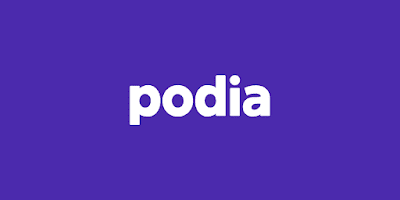Today, Thinkific is regarded as one of the top platforms for building online courses. But not everyone can afford a premium subscription, therefore we wrote this post to point you in the direction of a Thinkific substitute. We'll go over our top 5 recommendations in this article based on the opinions of our experts.
5 Best Alternatives For Thinkific in 2022
1. Freshlearn

FreshLearn is the ideal alternative platform for developing an online course. With its simple, no-code features that jumpstart any learning process, users may construct their first professional sales website in less than a day with the aid of this program.
You can create various affiliate programs and promo codes, which will bring in money when someone purchases from you because they're giving them useful details about further products that might be of interest.
Pros
- Transaction fees are 0%.
- Sell every kind of digital good. You can produce and market digital downloads, coaching, live seminars, podcasts, newsletters, and more.
- Specialized tests and a question bank. Launch your assessments with a few clicks by importing all of your questions into the question bank. Include pass percentage, good and bad grades, and more.
- Compliance and Certification: Make course compliance a requirement for enrollment, and upon successful completion of the course, automatically generate completion certificates.
- One place to go. All the tools needed for sales and marketing are available through FreshLearn, including discounts, affiliates, sales pages, checkout, payment gateways, and several price plan options.
Cons
- Lack of a community: there is no way for pupils to interact with one another.
- Small-scale gamification: Gamification features like reward points are present, however, badges are not.
Plans and Pricing
- Free Plan: $0 per year plus a transaction fee of 9%.
- Starter Plan: $29.00 per month plus a 0% transaction fee
- Brainer Plan, $59/month including a 0% transaction charge
FRESHLEARN LINK: https://freshlearn.com/
2. Teachery

Teachery is a reliable and reasonably priced platform for course developers with straightforward course offerings.
The main disadvantage is that it can't hold online learning course materials like videos, thus it's not ideal if you employ a lot of embedded multimedia files and elements.
Pros
- Includes "unlimited everything" with all plans (courses, students, emails, etc.)
- Allows for extensive brand-consistent customization of landing pages and course content development
- Enables course style customization to match an existing website
Cons
- Lacks features for community management
- Demands that material, such as videos, be housed elsewhere (e.g., YouTube or GoogleDrive)
- Fewer integrations than competing alternatives.
Plans and Pricing
- Features unlimited courses, students, and landing pages, as well as custom domains, an affiliate program, discount codes, and customer support.
TEACHERY LINK: https://www.teachery.co/
3. Udemy

As a marketplace different from an online course platform, Udemy is distinctive. It has a minimal entrance barrier because it is free to start using. They handle the marketing, but there is fierce competition, and you are required to pay a sizeable portion of each sale.
A Udemy course may be a fantastic location to start, but once you have a popular course, you should switch to a different site.
Pros
- Features such as certificates that encourage student engagement
- It's a simple and affordable way to get started.
- Includes cost-free teaching resources for you.
Cons
- Taking a large portion of the proceeds from most sales
- Requires more marketing work because you have no control over whether your course is listed. However, you'll make far more money if you direct students to your course.
- Includes the possibility that, if your course is not performing, the platform will shut it down.
Plans and Pricing
- Promotion for the instructor: The instructor receives 97 percent of the proceeds from any sales made as a consequence of their discount or course referral link (100 percent - 3 percent processing fee)
- Udemy Organic: 50% of the proceeds from courses bought there without a coupon are shared with users (for in-app purchases, Apple and Google charge 30 percent on each sale).
UDEMY LINK: https://www.udemy.com/
4. Teachable
Teachable is an easy-to-use course platform that works well with entry-level course options. It contains tools for delivering high-quality training content but prioritizes revenue over the educational experience.
Pros
- A reasonable choice for delivering fundamental online courses
- It is simple to use and a good option for newcomers.
- Consists of educational components like drip material and course compliance.
Cons
- Excludes sales and marketing capabilities
- Doesn't provide polls or other mechanisms for student interaction.
- charges a transaction fee of 5% when using the cheapest Basic Plan.
Plans and Pricing
- Basic: Consists of 5 percent transaction fees, coupons, and email marketing.
- Pro: Eliminates the transaction cost and offers additional support, graded quizzes, affiliate marketing tools, and a website without a brand.
- Business: Includes services including bulk student enrollments, theme customization, and group coaching calls.
TEACHABLE LINK: https://teachable.com/
5. Podia
Podia is a good choice for authors of online courses that offer memberships or digital downloads, but it isn't ideal for selling online courses.
It is advertised as an all-in-one platform that offers a complete range of assistance for a lone developer with straightforward products. Although it is reasonably priced, it is a stretch to term it an online learning management system (LMS).
Pros
- Supports the selling of digital files, ebooks, or videos
- Plans offer unlimited access to everything (customers, products, sales, emails, etc.)
- Incorporates promotional techniques like upsells and coupons
- Live chat assistance.
Cons
- The absence of learning tools like graded tests and certificates
- Unless you purchase the most expensive plan, excludes options like affiliate marketing, blog Development, and subscriptions.
- Lacks options for customizing and design.
Plans and Pricing
- Mover: $39.50 per month, or $32.50 if paid annually (custom website, webinars, features for email marketing, affiliate marketing tools)
- Shaker: $79 monthly or $65.20 if paid annually (messaging, daily live Q&A, free migrations, third-party codes)
- Earthquaker: $199 or $166 monthly if paid yearly (Priority support, onboarding calls, Monthly Creator Call)
PODIA LINK: https://www.podia.com/








No comments:
Post a Comment